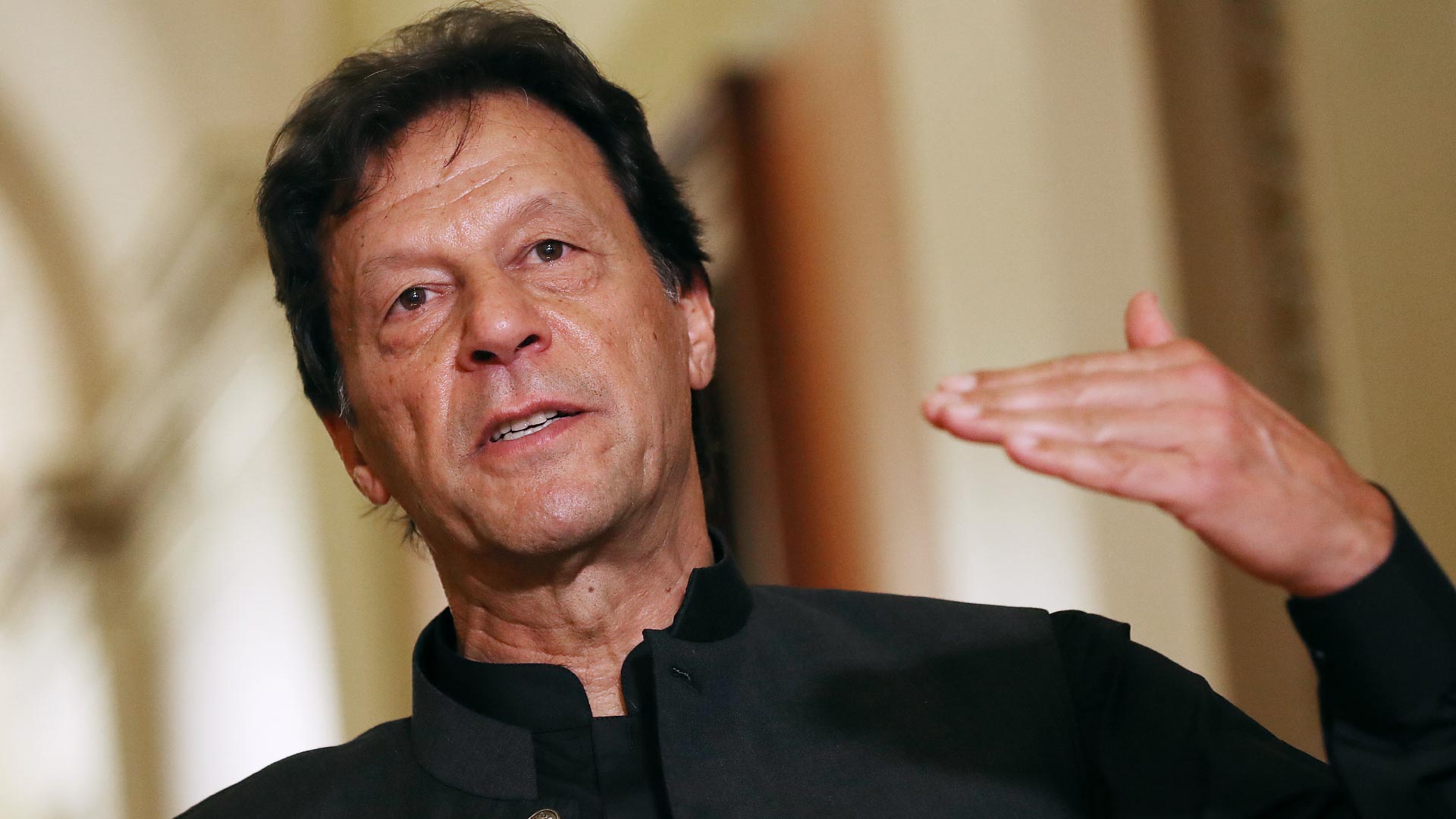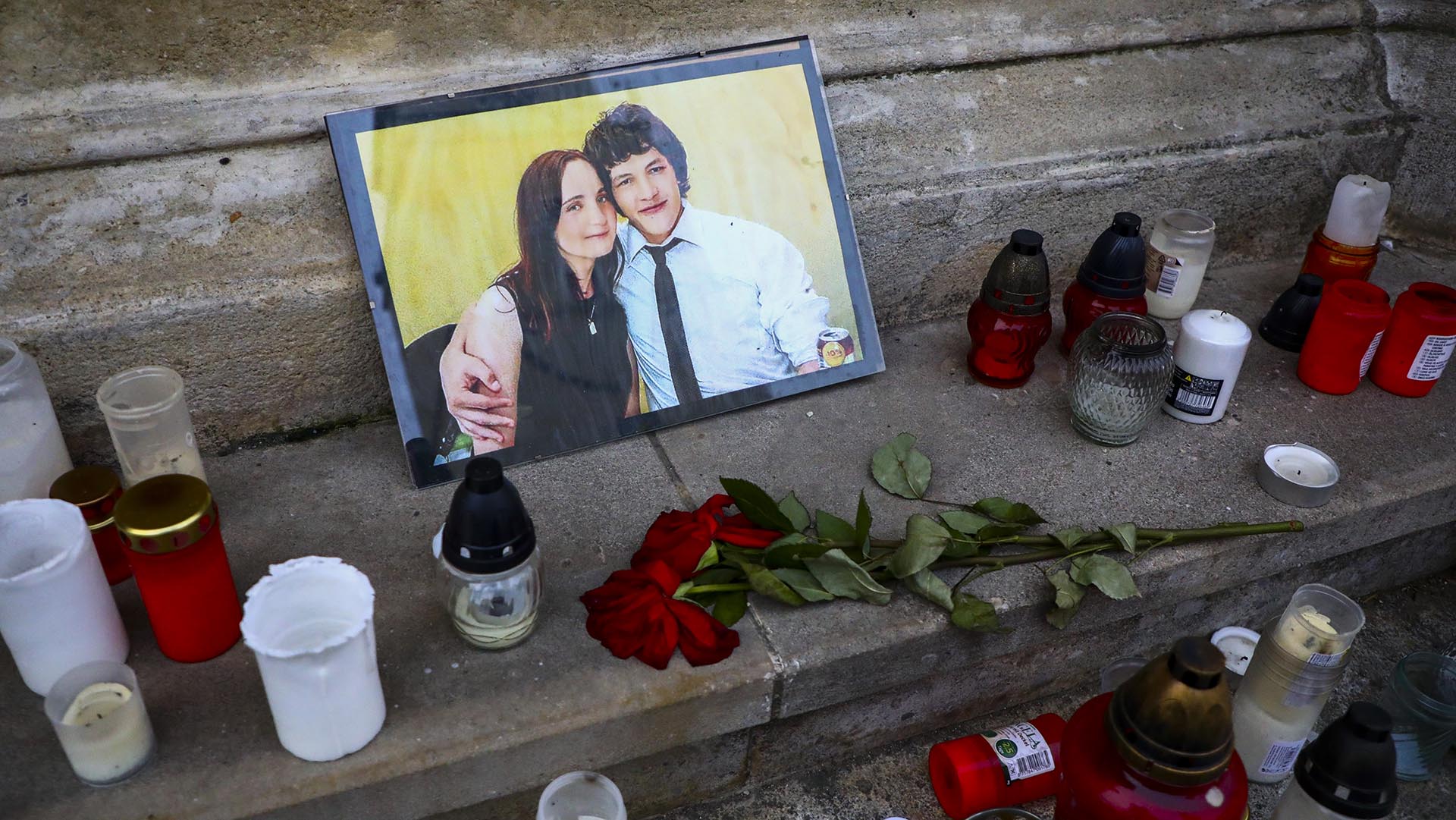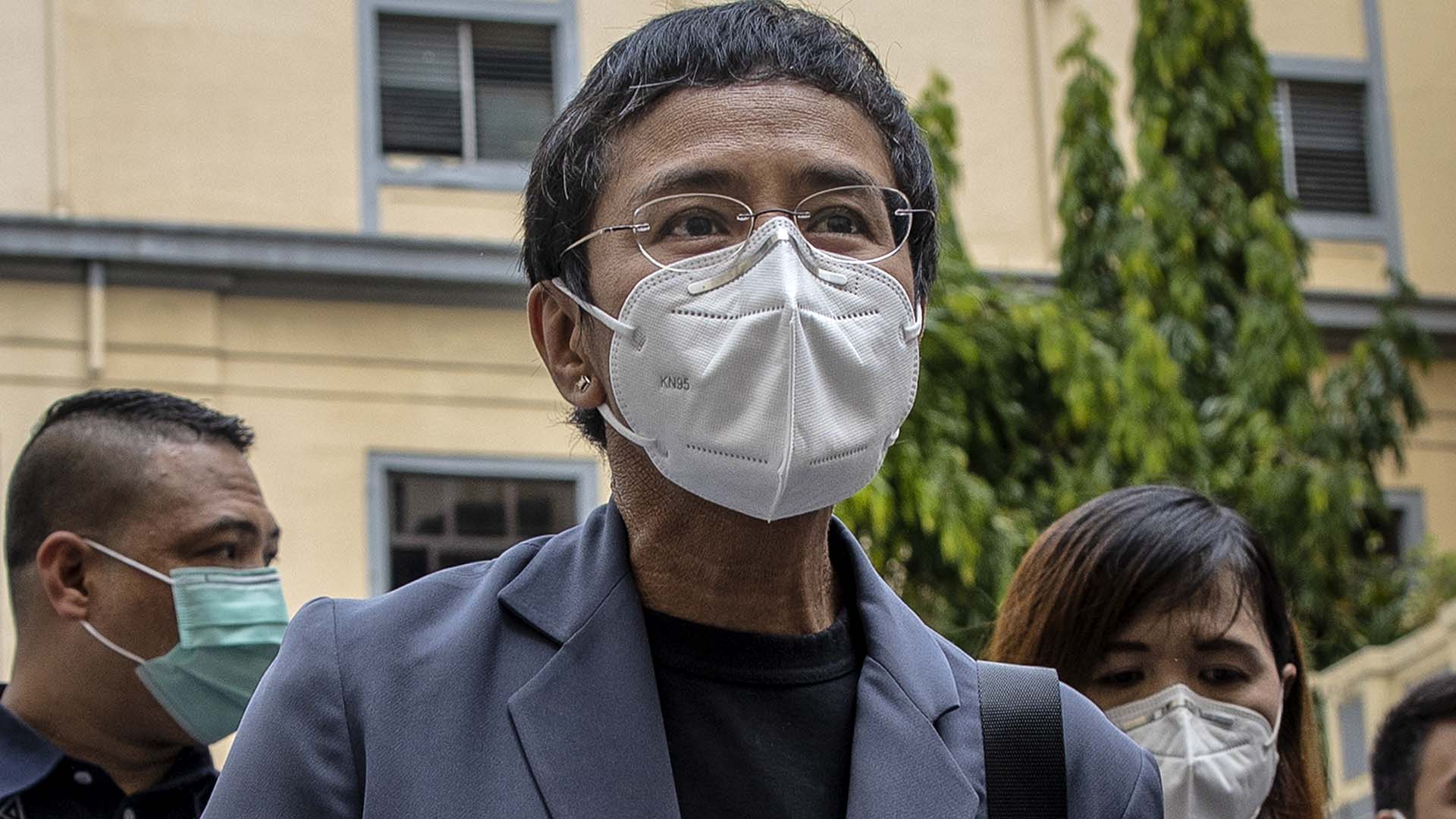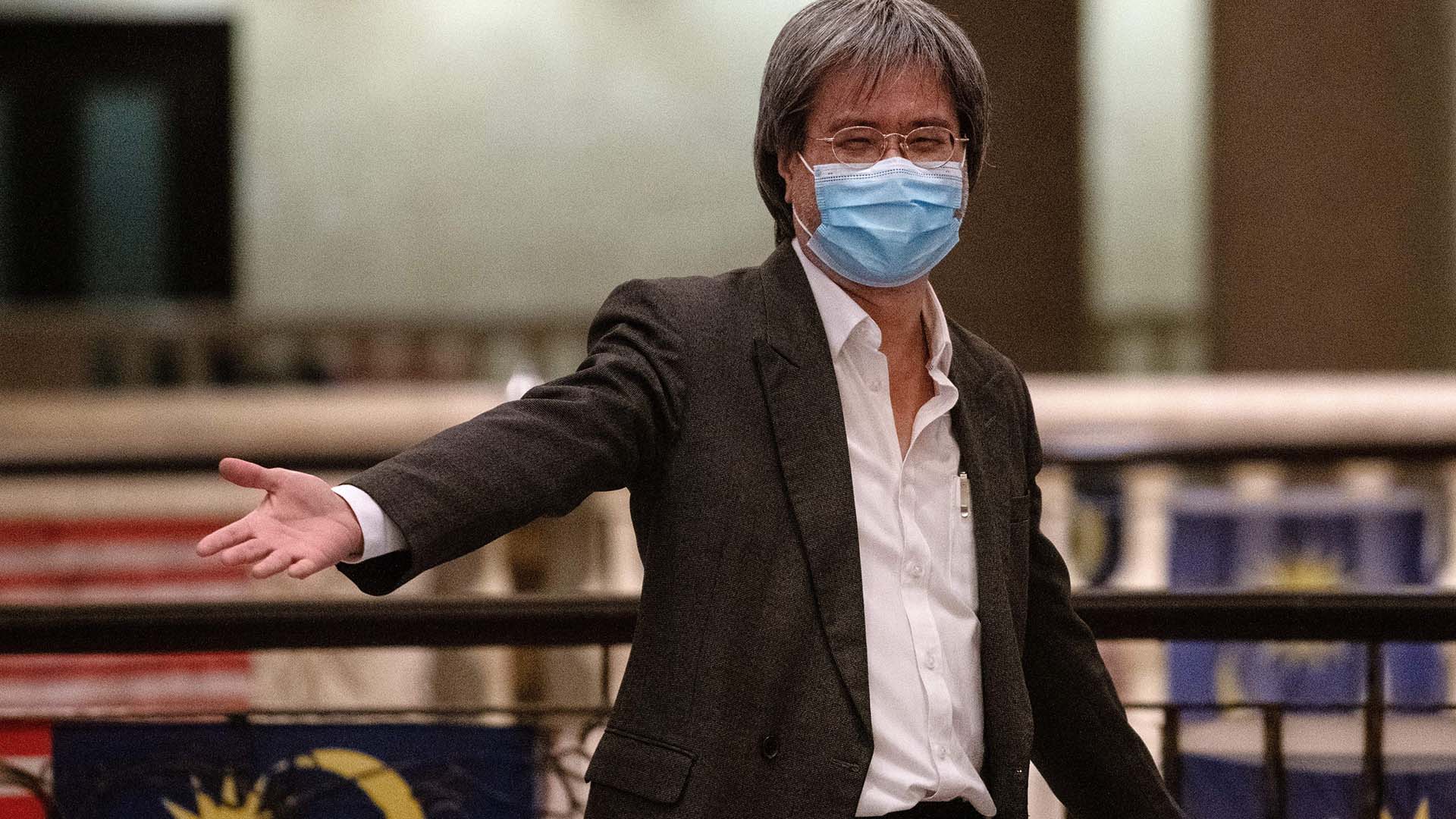The arrest of a reporter at his home in Karachi and the sedition case against a veteran Pakistani journalist last week furthered journalists and press freedom advocates’ concerns of a media crackdown in the country.
On Sept. 11, Bilal Farooqi, an editor with The Express Tribune, was charged with spreading hatred and defaming the military after a factory worker complained about the journalist’s social media posts allegedly criticizing the Pakistani Army, according to media reports. He was later released.
Soon after, the police in the district of Jhelum registered a complaint against Absar Alam, a senior journalist and former chairman of the Pakistan Electronic Media Regulatory Authority, who was accused by a lawyer of publishing allegedly derogatory tweets against Prime Minister Imran Khan and state institutions.
The Pakistan Federal Union of Journalists has condemned the allegations in both cases as “fabricated” and “concocted,” local media reported.
“There’s a lot of pressure to avoid some kinds of criticism,” said Steven Butler, the Committee to Protect Journalists’ Asia program coordinator.
Since Khan became prime minister in August 2018, the military’s influence on government affairs has grown and so has the administration’s aversion to criticism, said advocates and Pakistani reporters interviewed by ICIJ.
In a recent interview with Al Jazeera, Khan said there is no media crackdown and dismissed these concerns as “blatant propaganda.”
But statistics and journalists’ accounts tell a different story.
Between May 2019 and April 2020, there have been more than 90 cases of attacks and violations against members of the press in Pakistan, according to a report by Freedom Network. Seven were killed, and more incidents were reported after the study was released, including two murders in the southwestern province of Balochistan.
“Shockingly the state and its functionaries have emerged as the principal threat actor wielding the biggest stick to browbeat the media into submission and growing silence,” the advocacy group’s director said in a press release.
To list a few of these cases: the owner of one of the country’s largest media groups is currently in prison on charges related to a three-decade-old land deal; a Pakistani reporter in exile in Amsterdam was assaulted; and a reporter was abducted by armed men allegedly associated with the country’s secret services ahead of his appearance in court in relation to a contempt case.
In July, CCTV camera footage showed plainclothes officials and policemen surrounding reporter Matiullah Jan outside an Islamabad school where his wife works as a teacher and dragging him out of his vehicle in broad daylight. The reporter, known for criticizing the military, was detained and released a few hours later.
In March, officials with Pakistan’s anti-corruption agency arrested Mir Shakil-ur-Rahman, a media mogul who owns the Jang Media Group which includes Geo TV and The News, a newspaper and a partner of the International Consortium of Investigative Journalists.
The officials alleged that, in 1986, Rahman illegally acquired government-owned-land from the future Prime Minister Nawaz Sharif who was chief minister of Punjab province at the time. (Sharif was ousted in 2017 after revelations from the Panama Papers and a separate corruption investigation against him.)
Rahman’s Jang Group has alleged that, since 2018, its reporters and editors have received several threatening letters from officials for criticizing the government and the agency.
Advocacy group Human Rights Watch reported that Rahman’s case is one of many “unlawful” arrests carried out by the state anti-corruption agency, and shows how the agency abuses its powers to “detain critics of the government.”
Rahman was denied bail and temporarily allowed to stay in hospital due to his poor health conditions, said Umar Cheema, an ICIJ member and reporter at one of Jang Media Group’s publications.
Rehman’s lawyers are now taking the case to the Supreme Court, he said. No trial date has been set.
“His arrest has shaken our confidence to an irreparable level,” Cheema said.
Cheema also told ICIJ that he was surprised at how quickly the government’s attitude towards the media changed with the new administration. “It happened all of a sudden, faster than expected.”
One episode at the beginning of 2019 made him realize things were getting worse for journalists, he said.
In February last year, Cheema and other reporters were forced to take down a photo of slain Saudi journalist Jamal Khashoggi that he and others had published on their Twitter profiles, ahead of the visit of Saudi Arabia’s Crown Prince Mohammad bin Salman.
A confidential letter by the cybercrime unit of Pakistan’s Federal Investigation Agency and published on the website Gandhara shows that the agency had launched inquiries against the journalists for “disrespecting the Saudi leader.”
“Now is the worst of the times” for Pakistan’s press freedom, said Cheema, who in 2010 experienced abduction and torture by assailants he believes were associated with the army-controlled intelligence agency.
This year, Pakistan fell six spots in Reporters Without Borders’ press freedom ranking from 2018, when Khan was elected.
‘Behind-the-curtain censorship’
Even before these recent cases, Pakistan has long been labelled as one of the most dangerous countries for reporters.
But observers interviewed by ICIJ said that, while there may be fewer violent attacks than in the past, the tactics have changed. The powerful military, they said, has now switched to a more sophisticated kind of intimidation that involves controlling the media outlets’ bottomline and distribution.
Online harassment of journalists by government supporters and the pulling of government advertisements are not uncommon, leading some reporters and media outlets to opt for self-censorship to avoid layoffs, said Daniel Bastard, who heads Reporters Without Borders’ Asia-Pacific desk.
“It’s behind-the-curtain censorship,” Bastard said.
Pakistani reporters overseas are not safe either, he added.
In Europe, the number of Pakistani journalists and bloggers under attack for criticizing authorities back home is increasing, according to Radio Free Europe.
In May, Sajid Hussain, who was granted asylum in Sweden in 2019 after spending years in exile, was found dead in a river north of Stockholm after he went missing in March.
Hussain ran The Balochistan Times from abroad and was known for covering human rights violations in the province, including abuses by the Pakistani Army against political activists and dissidents.
After his body was found, the Swedish authorities ruled out foul play, reports said. But Reporters Without Borders said his death remains suspicious and could possibly be linked to Pakistan’s intelligence agency. The case is “very worrying,” Bastard said.
While currently overseas, a Pakistani journalist who was attacked and severely injured in 2017 is now trying to build a new independent media outlet.
After being forced to resign due to alleged pressure from the military establishment on his former employer, investigative reporter Ahmad Noorani decided to set up his own data-driven investigative news site recently renamed Fact Focus.
Soon after the launch, government officials began visiting his home and threatening him, said Noorani, who’s currently doing a fellowship in the U.S. and running the website remotely.
To avoid further threats and censorship in the future, Noorani said he plans to build a website that can resist possible attacks.
In the meantime, his startup — which aims to focus on environment, health and human rights — has already made the headlines with an investigation about a government adviser close to the military. Noorani and his team recently exposed the secret business deals of a retired general who currently advises the prime minister and chairs an infrastructure megaproject financed by China. The adviser denied all the allegations.
Soon after the story was published, Fact Focus’ reporters received threats from government officials and are now on the alert, said Noorani.
“They want all the critics to become totally silent,” he said.
Despite the threats, Noorani plans to go back to Pakistan once his U.S. stay is over and continue to run his independent website. “I have no fear,” he said, because “this is something that Pakistan needs.”



